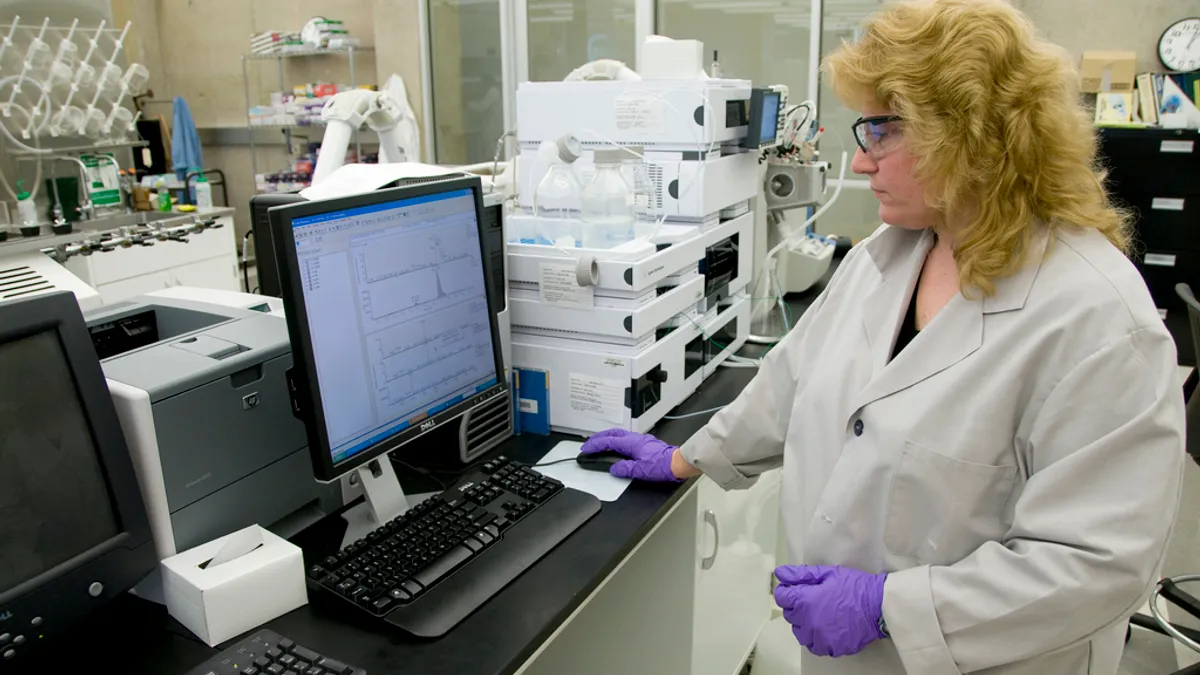Dive Brief:
- FDA is proposing a pilot program to accredit laboratories to perform premarket testing for companies to determine if a medical device conforms with consensus standards.
- The agency Friday published a draft guidance document laying out goals for the initiative and how it would operate the program, called the Accreditation Scheme for Conformity Assessment (ASCA).
- Device makers that participate can receive a declaration of conformity to use to support a premarket submission.
Dive Insight:
FDA is required to establish the ASCA pilot as part of the 2017 reauthorization of the Medical Device User Fee Act. The draft guidance outlines steps toward its implementation.
Evidence of conformity with FDA-recognized standards has generally been considered an efficient way for a manufacturer to address some regulatory questions about the safety and effectiveness of a device. However, the reliability of a conformity determination depends on the specific laboratory performing the testing and which standards are being used, which can lead to variability. This is particularly a concern as medical devices have become increasingly complex.
The pilot, which is voluntary, is intended to improve consistency in medical device testing and lower the regulatory burden by cutting down on the need for consultations about test methods with internal FDA experts, reviews of longer test reports performed by laboratories, and requests for additional information, the agency said.
Accredited in-house and independent laboratories that conduct premarket testing for devices can apply to participate. Under the plan, accreditation bodies will need to request formal recognition from FDA to become part of the pilot by identifying ASCA-eligible standards and test methods. The agency said it plans to review applications from accreditation bodies and testing laboratories in 60 calendar days.
After an applicant has been granted FDA’s ASCA accreditation for a scope of standards, it can conduct testing for manufacturers to evaluate devices for conformity. The lab would then issue a complete test report to the manufacturer, to include with supplemental documents such as summary test reports, in a declaration of conformity for a premarket submission.
In developing the pilot, FDA gathered input from industry, holding a public workshop in May 2018 to hear from device manufacturers and standards conformity assessment experts including accreditation bodies and testing laboratories. In September 2018, FDA published a guidance on the use of voluntary consensus standards in premarket submissions that addressed declarations of conformity.
That guidance, called the Appropriate Use of Voluntary Consensus Standards in Premarket Submissions for Medical Devices, drew pushback from industry at the time over FDA’s resistance to widespread use of promissory statements indicating future conformance with a consensus standard.
FDA ultimately softened its stance to allow for use of promissory statements in limited cases. However, the agency expects conformance to consensus standards to be met before submission of a premarket application, according to the final guidance.
In describing the new testing pilot, FDA said it relied on a well-established set of international conformity assessment standards used worldwide by accreditation bodies, labs and device makers. Several documents developed by the National Institute of Standards and Technology (NIST), the U.S. governmental physical sciences laboratory, also were consulted as resources.
The program will not affect a device maker’s responsibility to document how testing supports marketing authorization, regardless of whether it is performed by an ASCA-accredited lab, the agency said.
The comment period for the new draft guidance covering the pilot is open for 90 days. FDA said it expects to launch before Sept. 30, 2020. FDA will hold a webinar Oct. 28 for manufacturers, accreditation bodies, testing labs, standards organizations and others to explain the draft guidance and pilot program.













